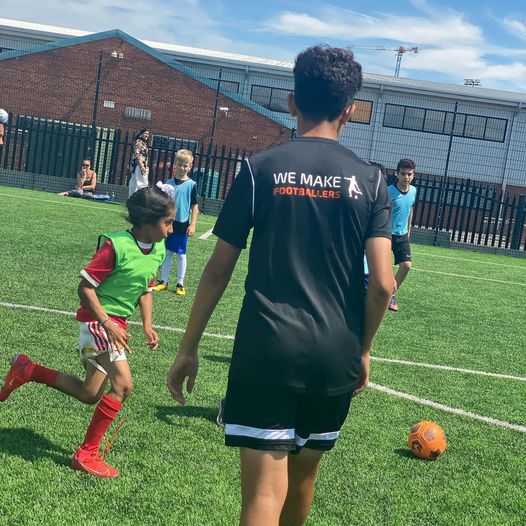How to make a career in football
If you want to make a career in football but you aren’t the most talented player, then we’ve got some good news for you – it doesn’t matter.
Playing is only a small part of what is a billion-pound industry. Because of the sheer size and popularity of football, there are hundreds of other roles in the sport in which you can carve out a career.

The question then is how to do so? How can you make a career in football, combining your passion for the game with full time employment?
Here are four steps to set you in the right direction.
Decide what you want to do
Identifying the career that you want in football is the most obvious place to start. Because the industry is so big, chances are there will be a role within it somewhere which fits your skillset and what you are good at.
On the playing side, coaches impart their knowledge and help players develop. There are plenty of opportunities available in these sorts of positions as every club from the top of the Premier League down to Sunday League Divisions who need managers and coaches, not to mention roles at professional coaching providers.
Those with an eye for talent and who are excellent at networking could look to move into the world of scouting. People with a head for numbers might find a position in football finance more to their tastes or perhaps analytics as the technological side of the game continues to grow. Physios and medical experts look after player welfare while there are roles available as agents, within administration, the media, diet and nutrition, marketing and PR – the list goes on.
To summarise, think of any career path or industry and there is a strong chance it crosses over somehow with football.
Secure the necessary qualifications
Once you’ve decided which route into football you want to take, then you can begin to secure the necessary qualifications to allow you to start your career.
Virtually every role that involves contact with players requires a qualification. Coaches must undertake their FA Level One at the most basic of levels while those with desires to reach the very top will eventually progress to the UEFA Pro Licence.
All agents have to be authorised to work through a FIFA scheme and it goes without saying that anybody wanting to take up a career as a physiotherapist is going to need to be taught to the highest standards. As for non-playing roles, formal coaching qualifications may not be as stringently required. However, more and more Universities are identifying the demand for football-related studies and diplomas.
If you want to work in the media for example, then a formal NCTJ or sports writing qualification might be deemed preferable by a potential employer, but more impressive will be a decent portfolio of writing and experience. Which brings us nicely onto…
Gain relevant experience
There are two main reasons as to why having relevant experience will help you make a career in football. The first is because those who have already worked in a similar role or within the industry before are more likely to know what they’re doing, just like with any job.
The second is possibly a little undervalued by those looking to move into football – it shows your love of the game. This is particularly true if you’ve gained that experience at grassroots level or as a volunteer showing that you’re willing to give up your free time to work in football, it suggests that a full time, permanent role would represent much more than just a career to you.
That makes volunteering a powerful thing. What better way is there to get an experience that will serve you well in the long run than by helping out a local club who may desperately need your support? It’s a win-win for everyone involved.
Find and apply for the right jobs
Once you’re qualified and have gained some experience, you’ll be in a position whereby you can start applying for jobs in football. There are a number of websites that specialise in roles within the industry which are worth looking at, including JobsInFootball.com. You can also approach various bodies direct to see what opportunities exist.
It can be quite a competitive industry, so don’t lose heart if at first you don’t succeed. After all, a job in the beautiful game will be well worth fighting for.




